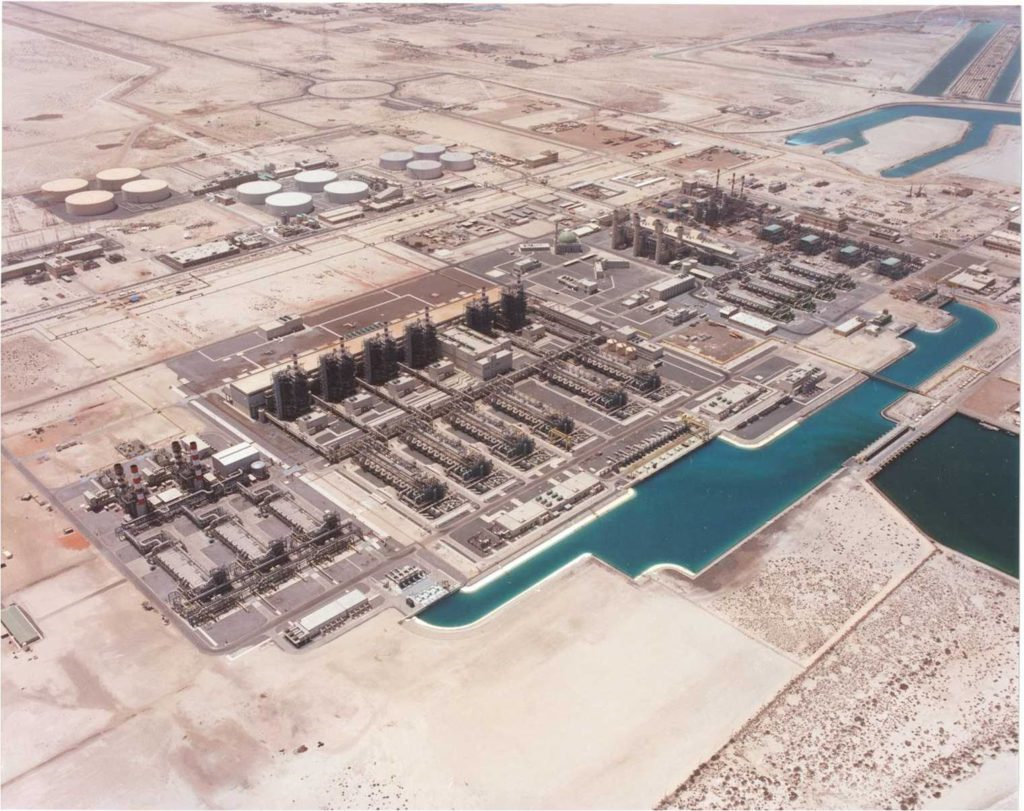AUSTRALIA – The New South Wales (NSW) government has decided to double the capacity of the Sydney Desalination Plant as the city’s reservoir levels approach its lower limit. A NSW Department of Planning, Industry and Environment official revealed that the government has decided to begin planning for the plant’s expansion.
There will also be other schemes in Sydney, as well as Hunter and other parts of NSW, according to the official. Sydney’s desalination plant is currently producing 250,000 m3/d—15% of Sydney’s water supply. The plan is to increase the plant’s capacity to provide 30% of Sydney’s water. Since there is already sufficient intake piping in place, and the site is prepared for expansion of the plant, construction of the expansion is expected to be swift.[1]
U.S.A. – Last week, U.S. Secretary of Energy Rick Perry revealed that the National Alliance for Water Innovation (NAWI) was selected to lead the Department of Energy (DOE) Energy-Water Desalination Hub (Hub). The Hub will center on early-stage research and development for energy-efficient and cost-competitive desalination technologies and manufacturing challenges. Congress has allocated a total of $40 million for the hub since the 2017 fiscal year. Public and private stakeholders are expected to fund an additional $34 million.
The NAWI is a public-private partnership with over 35 members and more than 180 organizations within the alliance. It is led by DOE’s Lawrence Berkeley National Laboratory in collaboration with several other National Laboratories. The NAWI team will develop technologies that treat seawater and brackish water that is to be used for municipal purposes as well as a variety of industries, including agriculture, oil, and gas. The goal is to advance energy-efficient desalination technologies that are cost-effective—and to reduce the environmental impact of 90% of non-traditional water sources within the next 10 years.[2]
EGYPT – President Abdel-Fattah El-Sisi ratified two loan agreements with the Kuwait Fund for Arab Economic Development (KFAED) for a total of $131.6 million to finance several desalination and wastewater treatment projects. The first loan, $49.3 million, will finance the construction of four desalination plants in the South Sinai governorate. Each of these facilities will produce 56,000 m3/d of water to supply cities in the South Sinai governorate.
President Sisi also signed a loan agreement for $82.2 million that will be used to finance the construction of the Bahr-el Baqar wastewater treatment plant. This project has been awarded to Arab Contractors and Orascom Construction, who will build a wastewater treatment plant with a capacity of 5,000,000 m3/d.
The treatment plant will be one of the largest on the African continent. To help finance this $739 million project, the Egyptian government is relying on a loan from the Arab Fund for Economic and Social Development.[3]
INDIA – The Dahej-based industries have ordered 70,000 m3/d from Gujarat Industrial Development Corporation’s planned 100,000 m3/d desalination plant at Dahej. Larsen & Toubro Limited (L&T) was awarded the contract for the construction of the $141.6 million project and the plant is expected to be operational by 2022.[4

The Taweelah B Power & Desalination Complex is the largest independent power and water plant in the UAE. Credit: tapco.ae
U.A.E. – Ansaldo Energia, an Italian power equipment and infrastructure firm, has been awarded a 10-year contract to service and maintain the 947-MW Taweelah New B Extension (TNBE) power and desalination plant. The agreement with Taweelah Asia Power Co. consists of long-term maintenance, parts supply, remote monitoring and repair work.
The TNBE plant, located 80 kilometers from Abu Dhabi in Al Rahba City, produces 310,952 m3/d and utilizes multi-stage flash units. It is part of the larger Taweelah B Power and Water generation project which is majority owned by Abu Dhabi Power Corp. and TAQA.[5]
NAMIBIA – The Popular Democratic Movement (PDM) released its 2019 elections manifesto, in which it promised to construct three desalination plants to address the country’s water scarcity, and to promote agricultural activities.[6]
[1] Annefdavies “Sydney desalination plant to double in size as dams approach critical level”, theguardian.com, Sep 25, 2019. <https://www.theguardian.com/environment/2019/sep/26/sydney-desalination-plant-to-double-in-size-as-dams-approach-critical-level > accessed Sep 28, 2019.
[2] “Department of Energy Selects National Alliance for Water Innovation to lead Energy-Water Desalination Hub”, energy.gov, Sep 23, 2019. <https://www.energy.gov/articles/department-energy-selects-national-alliance-water-innovation-lead-energy-water-desalination> accessed Sep 28, 2019.
[3] Jean Marie Takouleu “Egypt: KFAED finances desalination and wastewater treatment projects”, afrik21.africa, Sep 25, 2019. <https://www.afrik21.africa/en/egypt-kfaed-finances-desalination-and-wastewater-treatment-projects/> accessed Sep 28, 2019.
[4] “Desalination plant at Dahej to become operational by 2022”, indiatimes.com, Sep 22, 2019. <https://timesofindia.indiatimes.com/city/surat/desalination-plant-at-dahej-to-become-operational-by-2022/articleshow/71238635.cms> accessed Sep 28, 2019.
[5] “Ansaldo Energia providing service, digital predictive tools for power and water plant in UAE”, power-eng.com, Sep 20, 2019. <https://www.power-eng.com/2019/09/20/ansaldo-energia-providing-service-digital-predictive-tools-for-power-and-water-plant-in-uae/> accessed Sep 28, 2019.
[6] “PDM releases 2019 elections manifesto”, nbc.na, Sep 25, 2019. <http://www.nbc.na/news/pdm-releases-2019-elections-manifesto.25029> accessed Sep 28, 2019.

